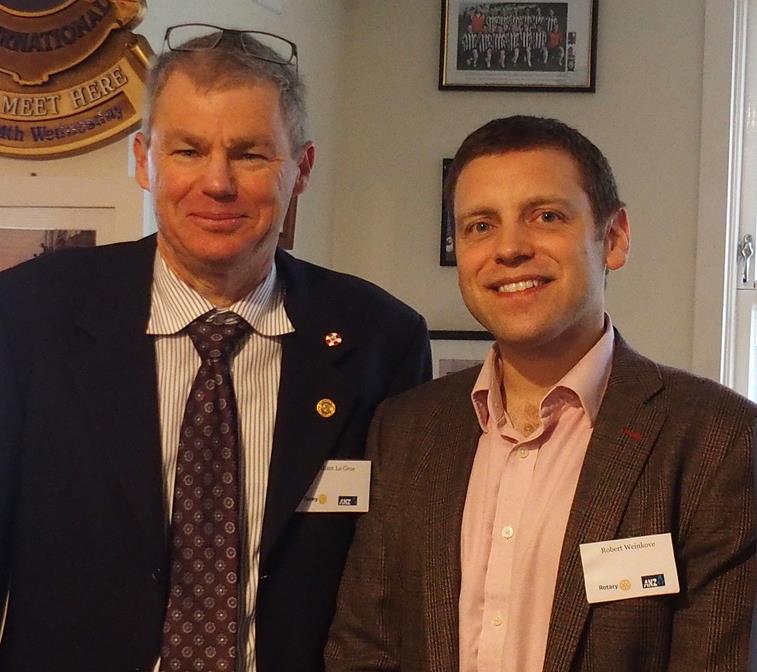 At the Rotary Karori/ANZ Bank business breakfast on 17 August, Professor Graham Le Gros, Chief Executive of the Malaghan Institute of Medical Research and Dr Robert Weinkove, consultant Haematologist, spoke about the work of the Institute.
At the Rotary Karori/ANZ Bank business breakfast on 17 August, Professor Graham Le Gros, Chief Executive of the Malaghan Institute of Medical Research and Dr Robert Weinkove, consultant Haematologist, spoke about the work of the Institute.It is vital that New Zealand continues to have an independent research organisation carrying out the active biomedical research programme being undertaken at the Malaghan with the support of Central Government, businesses and community organisations alike. The Malaghan Institute is now into its fifty-first year of research operations in New Zealand.
Graham Le Gros, a Rotary Paul Harris Fellow, said the Institute has built a strong foundation in basic biological research and through decades of investment and support for its research into the human immune system the results are paying off.
The research staff have an understanding of the immune system that is making it possible to use the body’s own systems to heal itself. Their work is focused on cancer, asthma and allergies, and brain health research. In the next decade or earlier, we will see an immune-based approach applied to treating conditions such as multiple sclerosis, autism and diabetes.
The Malaghan operates with 100 staff at its base in Kelburn. Graham Le Gros acknowledged his board colleague in the audience, Port Nicholson Rotarian Ian Paterson, along with wife and fellow Rotarian Jane. Ian has contributed large sums of financial support to research at the Malaghan from sales undertaken by his real estate company, Just Paterson.
Dr Robery Weinkove, Clinical Director of the Institute's laboratory team generating GMP-grade human dendritic cells, spoke on the Car T cell therapy programmes being undertaken at the Institute and provided a picture of how international research agencies, especially in China, are also leading on immunotherapy research.
He said their task as a team at the Malaghan Institute is to roll out new cancer therapy treatments, to build new cures for allergic diseases and to build the Mayo Clinic in the South Pacific. Their goals are to build manufacturing capability, clinical experience and quality management, and to collaborate with all other research groups.
The audience had many pertinent questions to our speakers on the future of the research programme at the Malaghan and were left in no doubt that the Institute is recognised globally as a world leader and is well supported by strongly interested philanthropic individuals and organisations who want to see the Malaghan Institute for Medical Research play an important role in shaping New Zealand’s future.